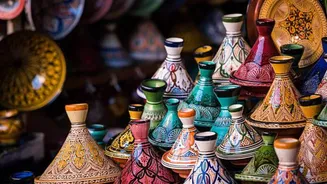Volcanic Awakening
The Barren Island, located in the Andaman Sea, holds the distinction of being India's only active volcano. This volcano, which has erupted multiple times
in the past, recently showed signs of activity again. The eruption took place shortly after a 4.2 magnitude earthquake struck the Andaman Sea. The seismic event on September 18 provided a precursor to the volcanic activity. The volcano's eruption was captured on video, providing a fascinating glimpse into the raw power of nature. The video shows lava streaming from the crater, underscoring the dynamic geological processes shaping the region. This event marks another instance of the island's active volcanic nature.
Eruption's Aftermath
The eruption of the Barren Island volcano has drawn considerable attention. The recent activity highlights the dynamic nature of the Andaman Sea region. The video of the lava spewing from the crater has gone viral, capturing the attention of scientists, enthusiasts, and the general public. The event provides an opportunity for further research into the region's geology and volcanic activity. The geological data, combined with the visual record of the eruption, offers valuable insights. Such events remind us of the powerful forces that shape our planet. The Barren Island continues to be monitored for any further changes or activity.
Geological Context
The Andaman and Nicobar Islands are situated in a geologically active zone. This area is part of the tectonic plate boundary. The convergence of these plates is a primary driver of volcanic and seismic activity in this area. The eruption of the Barren Island volcano is a direct result of this. The area's location makes it prone to earthquakes and volcanic eruptions. The recent 4.2 magnitude earthquake, followed by the volcanic eruption, further emphasized this fact. Monitoring such activities becomes crucial. This monitoring helps in understanding these complex processes. It's also crucial for ensuring the safety of the local population and informing disaster preparedness.












